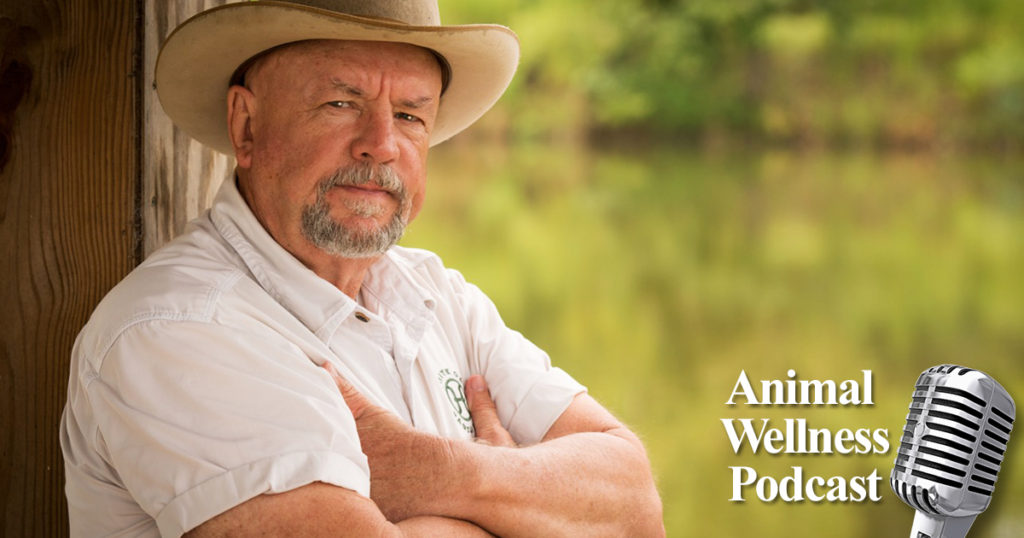At a time when the nation’s network of factory farming and mechanized slaughter plants is breaking down — disassembling overweight and crippled animals at an indescribably fast pace, killing and throwing away millions more on the farm because of a mass production system on auto-pilot, and the slaughterhouse workers heading for the respirators — can vegans and farmers who are paying attention to the lives of animals unite to rid the nation of these diabolical systems?
It’s an uneasy union, but an essential one. Vegans and vegetarians remind us of the importance of conscious choices about animals and health, and their lives are plain evidence that we don’t need meat to thrive. Conscious farmers and meat eaters — noting that meat-eating has been part of the human experience since pre-history, and unlikely to fade away — say there’s a better way. They can reduce, they say, 95 percent of the suffering that animals endure on factory farms.
Indeed, even with the newfound awareness of the horrors of factory farming, perhaps only five percent of Americans are vegans or vegetarians. But there are now tens of millions of others who are considering the idea of consuming less and more consciously, obtaining meat, milk, and eggs from sources that do not cause unending misery and torment for the animals, that don’t despoil the environment, and don’t treat workers like they are a different kind of chattel. Isn’t it so much better that these consumers shun eating meat from factory farms and opt for meat that comes from animals raised in extensive systems? That act reduces suffering in an immense way and it strengthens the community of farmers who may themselves be the most powerful force of all against factory farming.
Today, we talk with Will Harris, a fifth-generation farmer, who was years ago steeped in the industrial-farming strategies but turned away from them to make animal welfare the centerpiece of his business. He’s running a business, but he’s also proving the worthiness of a different model of animal production. In south Georgia, with the accent to prove it, Will runs White Oak Pastures in the small town of Bluffton, where his business is the largest employer. No cages, crates, or confinement sheds. Only pastures and forests. No transport to slaughter — only slaughter on the farm.
On today’s podcast, he reminds us that farmers are among the most powerful voices against a system of production that does so much harm in so many ways.
The Animal Wellness podcast is a regular segment that not only delivers timely information but offers insights and analysis you won’t hear anywhere else. We’ll offer in-depth discussions of local, state, or federal policy and elections, and the effects of laws and regulations on corporations. We hope you’ll listen today, and also check out earlier episodes:
- Episode 14: Priscilla Presley on Horses, Elvis and Animal Advocacy
- Episode 13: Greyhound Industry Teeters on the Brink as the Last Alabama Track Ends Live Racing
- Episode 12: Saving Lives — Human and Animal — With Better FDA Testing
- Episode 11: Caged Hunts and the Spread of Chronic Wasting Disease
- Episode 10: Pets and the Coronavirus
- Episode 9: The Ongoing Horrors of Trapping
- Episode 8: Updates on the Corona Virus and The Bear Protection Act
- Episode 7: Fixing the Lethal Abuses in Horseracing
- Episode 6: The Role of the USDA Checkoff Problems in Harming Animals and Family Farming in the U.S.
- Episode 5: Fighting a Diabolical Plan to Round Up Tens of Thousands of Wild Horses
- Episode 4: Big Cats: Endangered in the Wild and in Danger as Captives in the U.S.
- Episode 3: Michael Vick and the Continuing Battle Over Animal Fighting
- Episode 2: Shark finning, horseracing, and the PACT Act
- Episode 1: 2019 Victories for Animals
Wayne Pacelle is the founder of Animal Wellness Action, president of the Center for a Humane Economy, and former president of the Humane Society of the U.S. who conceived the idea of the PACT Act. He founded the Humane Society Legislative Fund and prior to that, he was executive director of The Fund for Animals. The Non-Profit Times named him seven times as one of the nation’s top 50 non-profit executives, and in 2005, he was named executive of the year. Pacelle is a two-time New York Times best selling author of The Bond and Humane Economy.
Marty Irby is the executive director at Animal Wellness Action. Irby worked in the United States House of Representatives for Congressman Ed Whitfield (R-KY) serving as Communications Director and Agriculture Policy Advisor. He is a former president of the Tennessee Walking Horse Breeders’ and Exhibitors’ Association, a Heritage Foundation Congressional Fellow, former director of equine protection and rural affairs at the Humane Society of the U.S., and native of South Alabama who grew up on a horse and cattle farm. He graduated from the University of South Alabama with a degree in Communications, and attended Wesley Theological Seminary in Washington, D.C.
Joseph Grove is a freelance writer and six-time recipient of awards from the Society of Professional Journalists. His background also includes hosting a radio show called Jargon on WQMF FM in Louisville, Ky., and podcasts for Bisig Impact Group and Southern Gaming and Destinations. He began dedicating his volunteer time to animal issues in 2014 and currently works as a court-appointed special advocate for children in family court in Shelby and Spencer Counties in Kentucky.
